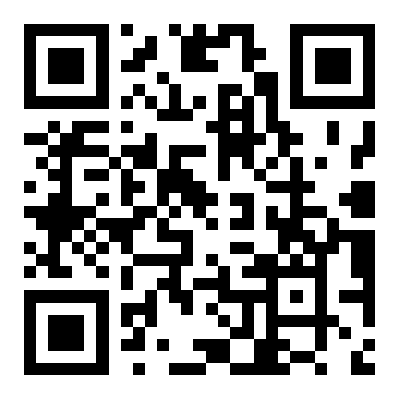Hybrid Hydrogel with Photothermal Stimulation Elicits Immunomodulation‐Mediated Wound Healing
Maintaining the thermal environment of the wound is critical to promote tissue repair and regeneration. However, the potential of hyperthermia as a regenerative treatment remains incompletely elucidated. This study demonstrates a photothermal hybrid hydrogel constructed through a simple "one-step" activation process. The hydrogel can provide stable photothermal cycling capabilities, activate immune responses, and accelerate tissue redox and immune homeostasis recovery. ultimately promotes wound healing. Research results show that the application of photothermal HGBM hydrogel in an injured wound healing model significantly increases reactive oxygen species (ROS) levels, enhances immune responses, and promotes macrophage polarization (M2/M1), thus A pro-regenerative response is induced. RNA sequencing data showed that mild heat therapy at 45°C enhanced the immune response and respiratory burst process, thus modulating the immune microenvironment in damaged tissues. Furthermore, this process transitions the inflammatory state of the wound to an anti-inflammatory and pro-healing state, a transition promoted by the production of factors such as interleukin-10 and interleukin-4. Therefore, this study provides an effective hyperthermia regenerative treatment strategy suitable for skin wound repair and tissue regeneration.
Innovation points:
1. Photothermal hybrid hydrogel: A photothermal gel is constructed through a "one-step" activation process to provide mild photothermal stimulation, activate immune response and promote wound healing.
2. Immune regulation: Hydrogel enhances reactive oxygen species (ROS) levels, promotes macrophage polarization (M2/M1), regulates the immune microenvironment, and promotes wound repair.
3. Application of mild heat therapy: 45°C mild heat therapy regulates the immune microenvironment, transforms inflammation from inflammation to promotion of healing, and promotes wound healing.
4. RNA sequencing reveals mechanism: RNA-seq analysis demonstrates the regulatory effect of mild hyperthermia on immune response.
Inspiration for scientific research work:
1. This study demonstrates the potential of activating immune responses through mild thermal stimulation to promote wound healing.
2. By changing the immune environment of the wound site and transforming it from an inflammatory state to an anti-inflammatory and pro-healing state, it provides a new direction for the treatment of chronic wounds and refractory wounds.
3. Increasing ROS levels contributes to wound regeneration and immune response regulation. This mechanism can be further studied to explore strategies on how to promote wound repair through redox reaction regulation.
4. RNA-sequencing provides a powerful tool to reveal how mild hyperthermia promotes wound healing by regulating immune responses and redox processes.
Extension of ideas:
1. Combine photothermal stimulation with multiple functions such as drug release and gene regulation to develop a more intelligent hydrogel system to achieve multi-dimensional regulation in wound healing.
2. According to different trauma types (such as acute and chronic wounds) and individual patient differences, develop personalized temperature and heat treatment time plans to obtain the best immune regulation and wound healing effects.
3. Although this study shows that photothermal gel has good therapeutic effects in animal models, challenges in clinical application need to be overcome in the future, such as how to improve the biocompatibility, stability and long-term efficacy of hydrogels Continuity.
4. Combining mild heat therapy with other treatments (such as growth factors, stem cell therapy, or immunotherapy) may further improve wound healing, especially during complex and severe wound repair.
Innovation points:
1. Photothermal hybrid hydrogel: A photothermal gel is constructed through a "one-step" activation process to provide mild photothermal stimulation, activate immune response and promote wound healing.
2. Immune regulation: Hydrogel enhances reactive oxygen species (ROS) levels, promotes macrophage polarization (M2/M1), regulates the immune microenvironment, and promotes wound repair.
3. Application of mild heat therapy: 45°C mild heat therapy regulates the immune microenvironment, transforms inflammation from inflammation to promotion of healing, and promotes wound healing.
4. RNA sequencing reveals mechanism: RNA-seq analysis demonstrates the regulatory effect of mild hyperthermia on immune response.
Inspiration for scientific research work:
1. This study demonstrates the potential of activating immune responses through mild thermal stimulation to promote wound healing.
2. By changing the immune environment of the wound site and transforming it from an inflammatory state to an anti-inflammatory and pro-healing state, it provides a new direction for the treatment of chronic wounds and refractory wounds.
3. Increasing ROS levels contributes to wound regeneration and immune response regulation. This mechanism can be further studied to explore strategies on how to promote wound repair through redox reaction regulation.
4. RNA-sequencing provides a powerful tool to reveal how mild hyperthermia promotes wound healing by regulating immune responses and redox processes.
Extension of ideas:
1. Combine photothermal stimulation with multiple functions such as drug release and gene regulation to develop a more intelligent hydrogel system to achieve multi-dimensional regulation in wound healing.
2. According to different trauma types (such as acute and chronic wounds) and individual patient differences, develop personalized temperature and heat treatment time plans to obtain the best immune regulation and wound healing effects.
3. Although this study shows that photothermal gel has good therapeutic effects in animal models, challenges in clinical application need to be overcome in the future, such as how to improve the biocompatibility, stability and long-term efficacy of hydrogels Continuity.
4. Combining mild heat therapy with other treatments (such as growth factors, stem cell therapy, or immunotherapy) may further improve wound healing, especially during complex and severe wound repair.
5. In addition to skin wounds, the application potential of this photothermal gel can also be studied in the repair of other types of wounds (such as visceral damage, cartilage damage, etc.) to broaden its application scope.
Adv. Funct. Mater.
Pub Date : 2024-11-28
DOI : 10.1002/adfm.202419170
+86-18915413828(WhatsApp&WeChat)
Previous: 《Nature》Biomimetic pro
Next: Periodontitis doctor-w


